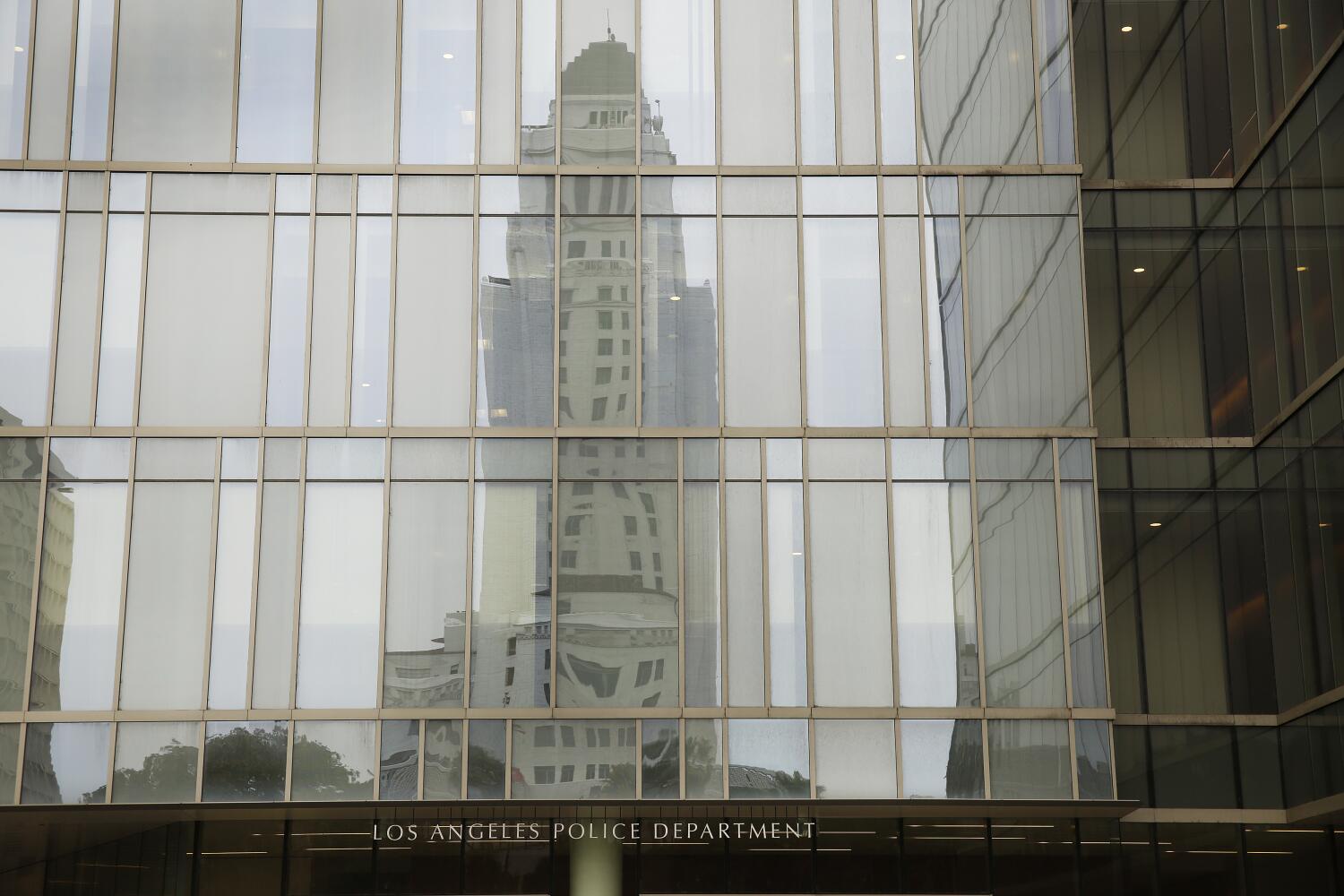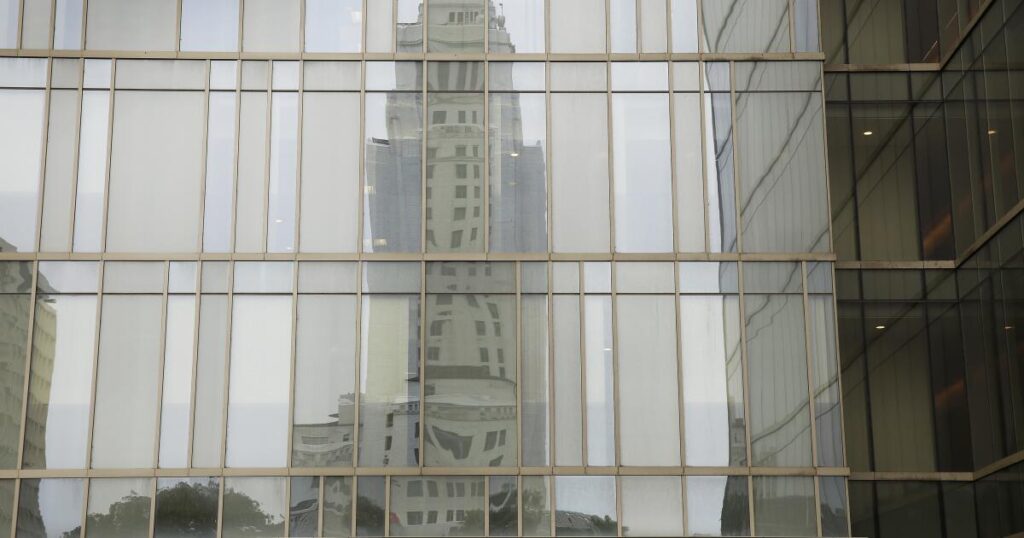
A police officer accused of falsifying records in the Los Angeles Police Department’s gang-framing scandal pleaded no contest Thursday to six felony charges.
Prosecutors allege Braxton Shaw falsified dozens of interview cards that police filled out at the scene, labeling 43 people as gang members who either failed to admit or outright denied affiliation. Some ended up in the national gang database.
The 41-year-old officer entered the plea as part of a deal with prosecutors to resolve multiple felony charges that could have sent him to prison for decades.
Shaw was one of six officers from the LAPD’s elite Metropolitan Division charged in 2020 in connection with an investigation into falsifying data. Charges against five others were dismissed.
Prosecutors say some of the people Shaw misidentified ended up in a national database called CalGang. The Los Angeles Police Department and the county district attorney’s office later said body camera footage of Shaw and his partner showed the cards were counterfeit.
A prosecutor told Los Angeles County Superior Court Judge Eleanor Hunter that in return for Shaw’s no contest plea to six felony charges of filing a false report to police, Shaw will serve two years of probation and surrender to his peace officer. certificate and perform 250 hours of community service. If he violates the terms of his probation, Shaw could face more than seven years in prison.
district. Atty. George Gascón’s office also reserves the right to oppose any defense effort to reduce the conviction to a misdemeanor at Shaw’s sentencing on Sept. 25.
“I am pleased with the outcome of this case,” Gascón said Thursday. “Mr. Shaw’s betrayal of his oath to serve and protect the community is not only disappointing, but undermines the integrity of our law enforcement and the trust the community has placed in them. Our office remains committed to a legal system that operates with integrity and fairness.”
The investigation into the falsified records began in 2019 after a Van Nuys woman received a letter informing her that her son had been identified as a gang member. She believed her son had been mistakenly identified and reported the incident to a supervisor at a nearby police station. The supervisor reviewed the body-worn camera footage and found that the officer’s profile was inaccurate. The department removed the woman’s son from its gang database.
Shaw’s attorney, Greg Yacoubian, said at a previous hearing that his client relied on information from other officers and sources describing someone as a “self-admitted” gang member.
The department uses on-site interviews with gang members as a measure of productivity to incentivize police to conduct stops.
In the wake of the scandal, the police chief and mayor announced that the Los Angeles Police Department would stop submitting new entries to the CalGang database. Then-Chief Michelle Moore acknowledged to the Police Commission that a months-long review found glaring inconsistencies and inaccuracies in how the LAPD used the database, and the chief recommended that the department permanently cease participation.
A 2020 Times analysis found that Metro uses live interview cards more than the rest of the department. The division made up about 4 percent of the force, but accounted for more than 20 percent of the field interview cards issued by the department during the 18-month period.

